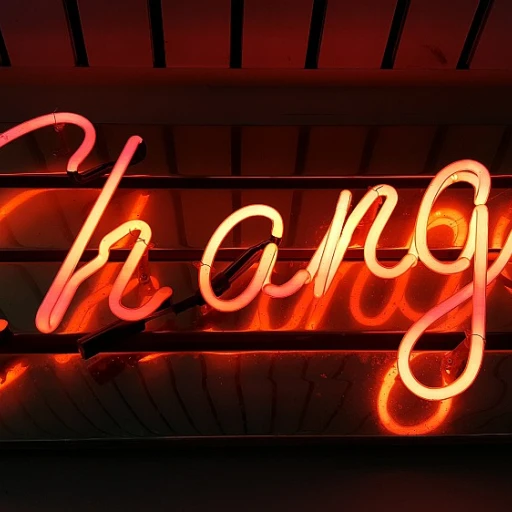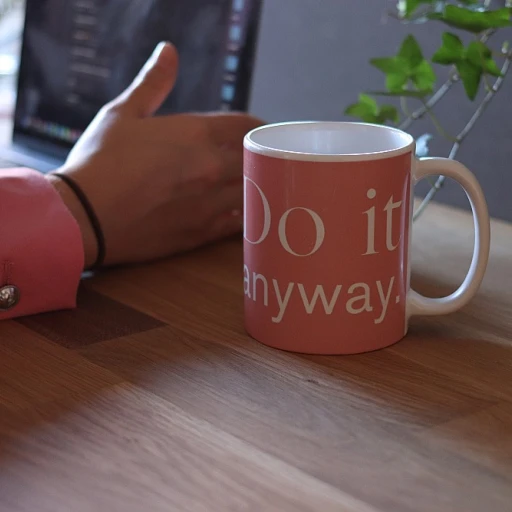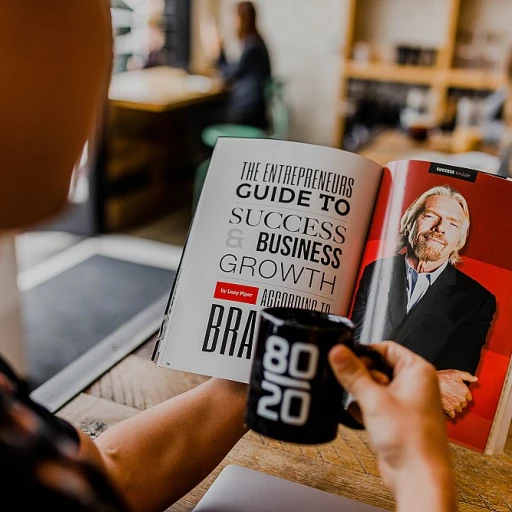Understanding the Structure of Panel Interviews
The Layout and Its Significance
Panel interviews bring a unique dynamic to the hiring process, differing markedly from traditional one-on-one interviews. This format features multiple interviewers, often representing different departments or job functions within the organization. The panel setup allows a candidate to be evaluated by a variety of perspectives, thus creating a more rounded assessment of their skills, experience, and potential cultural fit.
While a panel interview might seem daunting to a candidate facing several panel members simultaneously, it serves critical purposes for a company. The involvement of diverse team members ensures the collective decision-making reflects the comprehensive needs of the role and the company culture. Moreover, it provides a means for cross-departmental collaboration, yielding insights from varying expertise and reducing bias in the hiring process.
Panel members typically consist of the hiring manager, potential team members, and occasionally, a representative from Human Resources. Each member brings a unique set of {skills and expectations to the table}, directing their interview questions based on different priorities. For instance, while a technical expert focuses on assessing job-specific skills, a HR professional might gauge the potential for long-term development within the company.
Of note is the prepared nature of panel interviews. Due to the presence of multiple interviewers, the process often follows a structured format. Candidates can expect both {broad thematic questions} as well as {role-specific inquiries} aimed at evaluating competencies from various angles. This format, while structured, allows space for dialogue and engagement, encouraging the candidate to showcase their multifaceted skillset.
Understanding the distinct layout and intent of a panel interview can significantly enhance both candidate experience and the efficacy of the hiring process. For more detailed strategies on {crafting effective interview questions} for such settings, reference the insights
here.
The Candidate's Perspective: Challenges and Opportunities
Experiencing the Panel from a Candidate's Vantage Point
Participating in a panel interview can be an intimidating ordeal for many candidates. The anxiety stems from the complexity and dynamics of facing multiple interviewers simultaneously. Unlike the traditional one-on-one interview, panel interviews bring together team members from various departments, each contributing to a multifaceted evaluation of a candidate's fit for the role.
Candidates face several challenges during panel interviews, starting with the pressure of making eye contact and providing cohesive responses to interview questions. The presence of multiple panel members often creates a daunting atmosphere, as each member could have distinct priorities and expectations, reflecting the diverse needs of the company. This dynamic setup necessitates that interviewees effectively balance their responses to address varied queries, which can range across technical skills, company culture fit, and personal attributes.
Interestingly, panel interviews are not without their opportunities. They provide a unique space for candidates to demonstrate their interpersonal skills and adaptability directly to key decision-makers in the hiring process. A successful panel interview will help candidates showcase their ability to engage with a variety of personalities, highlighting their potential to integrate within the company as a proactive and adaptable team player.
Moreover, a candidate's ability to articulate their ideas clearly and maintain composure under scrutiny often leaves a lasting impression on the interviewers, potentially setting them apart in the hiring process. Pre-interview preparation is crucial; knowing the role and understanding the company can greatly enhance a candidate's performance during such interviews.
Additionally, candidates interested in mastering these skills can benefit from resources on crafting effective strategies for peer-to-peer interactions. Such preparation can significantly empower candidates to navigate the challenging dynamics of panel interviews. For more insights, explore
Crafting Effective Peer-to-Peer Interview Questions.
Best Practices for Candidates in Panel Interviews
Strategies for Thriving in the Panel Interview Environment
Navigating the complexities of a panel interview requires preparation and adaptability. A successful candidate should consider several strategies to effectively present themselves to multiple interviewers and make a lasting impression.
- Research and Understand the Role and Company: Prior to the interview, candidates must familiarize themselves with the job description and company culture. Understanding the company's values and the required skills for the role will enable candidates to tailor their responses, ultimately aligning their attributes with the organization's expectations.
- Anticipate and Prepare for a Range of Questions: Panel interviews often involve diverse questions ranging from technical skills to behavioral assessment. Candidates should practice tailoring their responses when asked questions that test varied attributes, ensuring they address their strengths in relation to the job requirements.
- Maintain Eye Contact and Engage with All Panel Members: It's crucial to engage with each panel member by maintaining eye contact and addressing them during responses. This helps convey confidence and demonstrates respect for the entire hiring team, showing that every perspective is valued.
- Highlight Adaptability and Communication Skills: In a setting with multiple interviewers, showcasing excellent communication skills becomes paramount. Demonstrating adaptability in responding to different questions and constructive feedback will position the candidate as a competent and flexible team player.
- Convey Enthusiasm and Fit: Utilize the opportunity to express genuine interest in the position and demonstrate how one's experiences and skills are perfectly aligned with the company's goals. Enthusiasm can often be a deciding factor in competitive scenarios.
Candidates who are well-prepared and mindful of these strategies can significantly enhance their panel interview experience. For more in-depth insights on what to expect during the interview process, consider exploring this
candidate experience guide. It offers detailed information on how to effectively handle a complex and demanding interview scenario, setting the stage for a positive outcome. By leveraging these strategies, candidates not only show their suitability for the job but also create a lasting positive impression on the interviewers.
The Employer's Role in Enhancing Candidate Experience
The Role of Employers in Improving the Candidate Experience
For a company to excel in securing the best talent, it's crucial that the candidate experience during panel interviews is optimized for effectiveness and positivity. Here are key considerations for employers:
- Assembling the Right Panel: Select a diverse mix of panel members who can evaluate different aspects of a candidate's skills and fit for the role. This diversity not only informs a more comprehensive view of the candidate but also showcases the inclusive culture of the company.
- Preparation and Coordination: Ensure all panel members are well-prepared and aligned with the interview objectives. This includes disseminating the candidate's resume, cover letter, and other relevant materials ahead of time, as well as setting clear expectations regarding who will focus on which topics.
- Craft Meaningful Questions: Avoid redundancy by agreeing on the questions each panel member will ask. Focus on eliciting responses that reveal the candidate’s potential contributions, their understanding of the company culture, and their compatibility with the team.
- Manage Time Wisely: Panel interviews can be time-consuming. Employers should ensure that time is managed efficiently, allowing each panel member to ask their allocated questions while also leaving space for candidates to ask questions of their own.
- Foster a Comfortable Atmosphere: Candidates often find panel interviews intimidating due to the presence of multiple interviewers. It's vital to foster a friendly and supportive environment to encourage candidates to present their best selves. Simple acts like maintaining eye contact, introducing each panel member at the onset, and offering water can significantly ease candidates' nerves.
- Prompt Feedback and Communication: After the panel interview, employers should debrief promptly and convey decisions to candidates within a reasonable time frame. Not only does this demonstrate respect for the candidate’s time and effort, but it also reflects positively on the company’s reliability and professionalism.
By addressing these aspects, employers will help transform what can be a daunting experience into an enriching one, ultimately refining the hiring process and attracting top-tier candidates.
Common Mistakes in Panel Interviews and How to Avoid Them
Fatal Errors to Sidestep During Panel Interviews
Navigating a panel interview can be daunting, but awareness of common pitfalls can significantly enhance the candidate experience. Here, we delve into frequent mistakes and how to steer clear of them, ensuring a smooth interview process.
Lack of Preparation
Preparation is key in any job interview, especially with multiple interviewers present. Candidates sometimes underestimate the importance of preparing for panel interviews, believing generic responses will suffice. In reality, this scenario demands a more tailored approach. Thoroughly research the company and understand the qualifications and skills required for the role. Consider practicing responses to potential interview questions with a focus on the company culture and expectations.
Ignoring Non-verbal Cues
One area candidates often neglect is non-verbal communication. In panel interviews, maintaining eye contact is critical not only with the person asking questions but also with the other panel members. This demonstrates confidence and engagement, signaling respect for each team member. Use open body language and remain attentive to the cues of the interviewers, as this can provide insights on when to elaborate or wrap up an answer.
Overlooking the Opportunity to Ask Questions
Candidates sometimes focus solely on answering questions and forget the importance of asking insightful queries. Not utilizing this opportunity could be perceived as a lack of interest or engagement. Prepare questions that reflect a genuine curiosity about the role and the hiring process, which can also help you evaluate if the company aligns with your career goals.
Underestimating the Importance of Time Management
Time management during responses is often a challenging aspect of panel interviews. Lengthy answers can disengage a panel, while too brief responses might not be thorough enough. Practice concise, yet comprehensive, responses ahead of the interview to maintain a well-paced dialogue.
Failure to Build Rapport with the Panel
Lastly, failing to create a connection with the panel members can hinder your success in the interview. Establishing rapport fosters a positive candidate experience and can differentiate you from other candidates. Being personable and authentic in your interactions will help leave a lasting impression with the hiring team.
Avoiding these common mistakes enhances your chances of success in a panel interview, making you stand out as a well-prepared and professional candidate in the eyes of the company. By focusing on preparation, engagement, and effective communication, you can transform the dynamics of what might initially seem like a daunting interview process.
Future Trends in Panel Interviews
Embracing Changes: The Evolution of Panel Interviews
The landscape of panel interviews is continuously evolving to better serve both candidates and employers in the hiring process. With technological advancements and evolving workplace cultures, several future trends are emerging that might redefine the approach to panel interviews.
- Increased Use of Technology: As virtual and remote work environments become the norm, panel interviews are incorporating advanced technologies. Platforms that enable seamless virtual interviews are becoming popular, allowing for flexible scheduling and participation from multiple geographical locations. This shift not only saves time but also expands the pool of potential panel members and candidates.
- Focus on Candidate Experience: As discussed earlier, a positive candidate experience is paramount. Employers are now more keenly aware of the impact of candidate experience on company reputation. They are beginning to tailor their interview process to be more candidate-friendly, ensuring that the questions asked, feedback given, and the overall approach align with a supportive and transparent company culture.
- Competency-Based Assessments: Instead of relying solely on standard interview questions, there is a growing trend towards competency-based assessments. This approach focuses on skills and behavior that align with the job role and company values, providing clearer insights into a candidate's potential fit within the team.
- Use of Data and Analytics: Companies are increasingly leveraging data analytics to refine their panel interview processes. Analyzing data from past interviews can help identify patterns, improving interview questions and reducing biases. Data-driven insights will help employers better prepare panel members and optimize the hiring process.
- Collaborative Team Approach: Reflecting the dynamics of modern workplace environments, interviews are being designed to gauge how well candidates may fit into collaborative team settings. This shift encourages active participation from all panel members, ensuring a comprehensive evaluation of the candidate's ability to work well with diverse groups.
As panel interviews continue to adapt and evolve, candidates and employers alike stand to benefit from a process that is more inclusive, data-informed, and considerate of holistic candidate experience. Embracing these trends can enhance not only the effectiveness of the interview process but also contribute to stronger, more cohesive teams within organizations.














